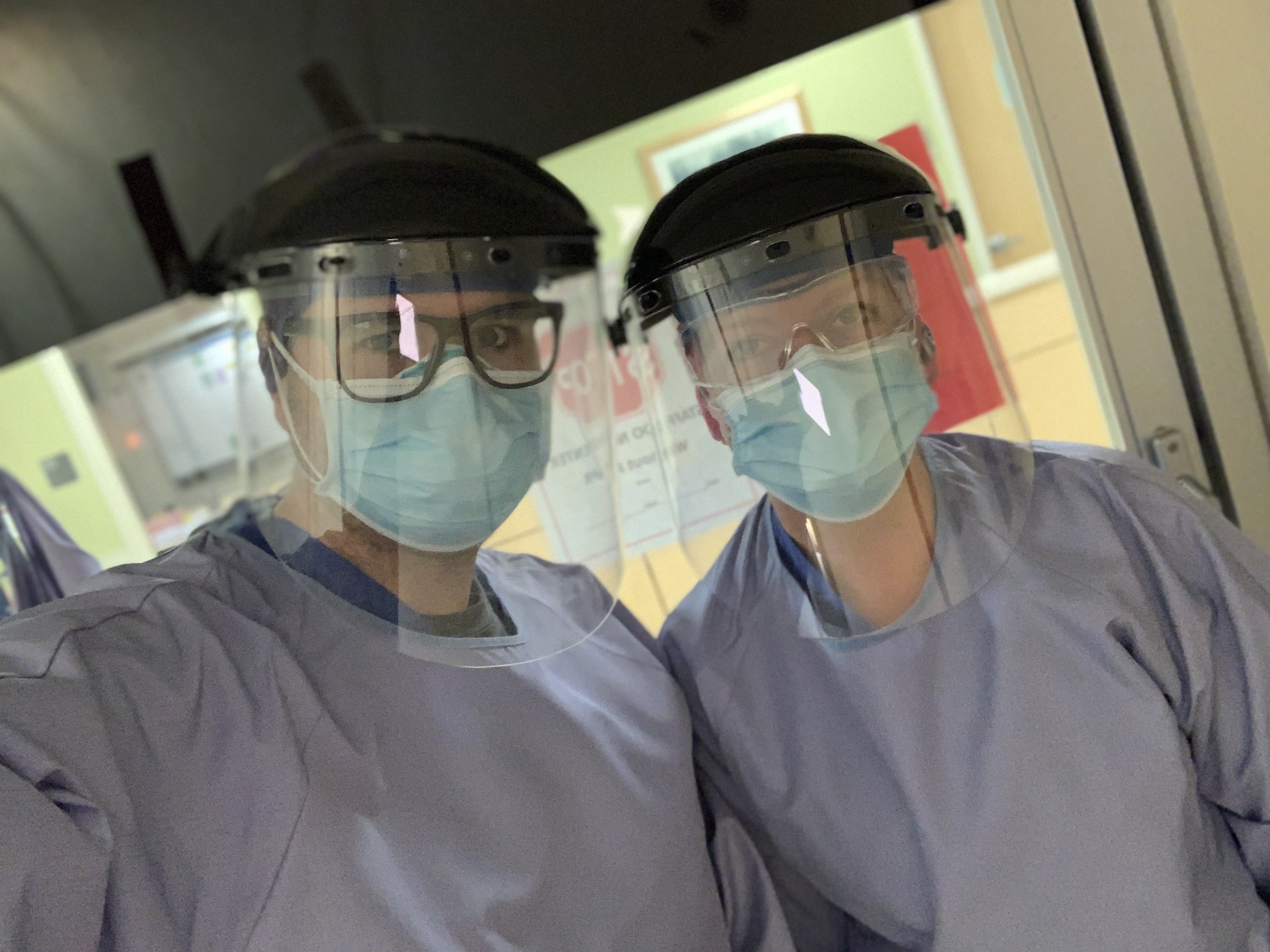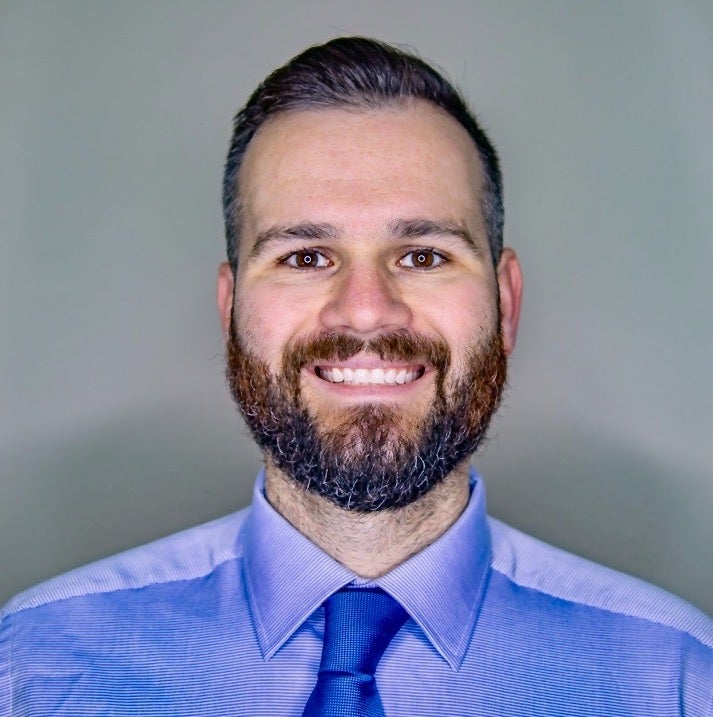
Nurses are the largest group of healthcare professionals in the world, and the first contact many patients have in a hospital at the time of admission. In addition to providing care and education to those they treat, they often provide comfort and guidance to patients and their families. Nursing as a discipline often incorporates humanistic care models to “foster mental and emotional health in addition to physical health,” according to Nursing Theory.
Clifford Moore, a student in the School of Nursing’s master of nursing (MN) program, is experienced in providing that kind of support for his patients. Moore served as a registered nurse for eight years in Seattle before entering Boise State’s MN program in January 2019. He worked in the cardiology unit at the University of Washington as the coordinator for ventricular assist devices, or as he calls them, “next-level pacemakers.”

“You use a machine to bypass a non-functioning part of your heart, and pump the blood through,” he said. “With people who have hearts unable to pump blood to the rest of their body, this can extend their life.”
Nurses frequently interact with patients on some of the hardest days of their lives. Patients may become confused, overwhelmed or have trouble sleeping or eating normally due to nerves.
“As a nurse, it’s not about me, it’s about them,” said Moore. “Sometimes we forget that patients are not in charge of when they eat, sleep, or move, and it can be overwhelming for them. They have no control in these situations.”
During these scary and stressful moments, nurses help patients prepare mentally and emotionally for major procedures, recovery and long-term lifestyle changes. Leslie Neal-Boylan, dean of the Solomont School of Nursing, University of Massachusetts Lowell, stated in an article in the Conversation that “nurses have always cared for the sick, the well and the dying… we are there for the entire patient experience from birth to old age, from wellness to illness, and throughout age and illness toward a peaceful and dignified death.”
In some cases when recovery isn’t possible, nurses may assist patients in what Moore calls a “comfortable death.” Some nurses choose to dedicate their careers to supporting patients and their families during end-of-life care, a branch of advanced practice nursing called palliative care.
Moore describes a course on loss, death and dying he took at the University of Washington during his time in the cardiothoracic intensive care unit as particularly impactful to his nursing practice. Students were placed in a simulation and asked to create three lists: a list of their hobbies and favorite activities; a list of loved ones, such as family and friends; and a list of other activities like work or collecting the mail.
“In one simulation, you go to the hospital and they say you have cancer; you can no longer [play with your dog]. Now, you start chemotherapy. Randomly pick a loved one from your list; you can no longer see them because you are immunocompromised.”
Some of the participants were no longer able to drive on their own or cook meals at home. Others lost loved ones to illness or injury. The simulation allowed the class to consider and discuss the loss that patients and their families may experience while under their care.
“That consideration becomes really important in how we communicate and how we interact with patients. It’s not just them, it’s their family and friends,” Moore said. “They are surrounded by five, ten people that you have to interact with in a compassionate way, while doing your job providing care. If it comes to it, I want this person to die with some comfort, and I want to make sure we are all on the same page about how we can make that happen.”
Illness, injury and death are difficult topics to discuss, but impossible to avoid entirely. The World Health Organization designated 2020 as the Year of the Nurse and Midwife to celebrate and honor nurses around the world serving patients in times of grief, disaster and crisis.
“You will find us caring for people in their homes, in public health departments, in nursing homes and skilled care facilities, in rehabilitation hospitals,” according to Neal-Boylan’s article. “We are always here for you. Always have been. Always will be.”
~ By Angela Fairbanks